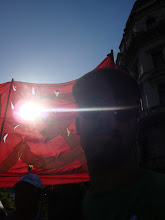In years past Mr. Andre' Farish Sr. and his friends would often cruse the Mississippi River. They would launch their boats from under the hill and step into a black bar/grocery, just across Silver Street, to get any supplies they needed. The McCoy estate that was comprised of several black families owned the bar/grocery.
Mr. Andre' Sr. developed a growing interest in the bar/grocery and when the opportunity presented itself, he began to purchase different heir's undivided interest in the building.
In 1976 he acquired total ownership of the property and then began a lengthy restoration that today gives us Under-The-Hill-Saloon.
Built in the late 1700s or early 1800s the building that now houses Under-The-Hill-Saloon has experienced a lot of Natchez history. The date of its construction is unknown due to a courthouse fire that destroyed most of the records, but historic research shows it has been used as a brothel, bar, warehouse and general merchandise store.
Early settlers from the north would float their goods down the Mississippi River to be sold in Natchez or New Orleans. While a better price may be paid in New Orleans, Natchez was the beginning of the Natchez Trace, which most all of the settlers would travel to go home. Therefore many flatboats loaded with goods were sold in Natchez rather than continuing on to New Orleans. Settlers that continued on downriver still had to come back to Natchez for their return home, and it is estimated that only half of the flatboats went all the way to New Orleans.
New Orleans dock records from 1841 recorded that 2,792 flatboats docked there. So it is conceivable that there were about 15 flatboats arriving daily in Natchez. Depending on its size, some were 100 feet long and 20 feet wide, their crew could number 15-20 men per flatboat. If you take everything into consideration - flatboats coming down river to sell their goods and then the settlers coming up river to return home - there were hundreds if not thousands of people passing through Natchez on a daily basis.
Natchez was one of the chief resorts of these river men. When they arrived here they knew their journey was almost over, therefore they indulged in one last fling before entering the wilderness on their way home. Drinking, gambling and ladies of the night were readily available and the travelers were anxious to indulge them all.
Natchez was divided into two parts: the town on the bluff which was orderly and respectful where life and property were safe, and then there was the lower part along the river bank, or “Natchez Under-the-Hill” as it was called and it was the home of every vice imaginable. It was so bad during the Spanish days no boatmen were allowed to come on top of the bluff without special permission of the Spanish commandant.
Natchez Under-the-Hill had a rough and tumble time during the flatboat days with thousands of people passing through each year, and the numbers only increased with the arrival of steamboats.
http://www.underthehillsaloon.com
Wednesday, November 4, 2009
Subscribe to:
Comments (Atom)
Inspiration from around the web.
Casa do Caminho
ONLY HOPE 1 (Congonha) blogspot
ONLY HOPE 1 (Congonha) facebook
Man travels around the world on bike. (Article)
David Byrne's wild wild (Biking) life. (Article/NPR Broadcast)
R&M Cyclery (Springfield, IL) (Bike shop in Springfield)
Chicago Critical Mass (A good time)
Your Community Spirit (Carbondale Radio Show)
Films (Sugestions by: Wiki)
88 Bikes (Organization)
Lance Armstrong (Cyclist)
Clif Bars (Energy Bar)
ONLY HOPE 1 (Congonha) blogspot
ONLY HOPE 1 (Congonha) facebook
Man travels around the world on bike. (Article)
David Byrne's wild wild (Biking) life. (Article/NPR Broadcast)
R&M Cyclery (Springfield, IL) (Bike shop in Springfield)
Chicago Critical Mass (A good time)
Your Community Spirit (Carbondale Radio Show)
Films (Sugestions by: Wiki)
88 Bikes (Organization)
Lance Armstrong (Cyclist)
Clif Bars (Energy Bar)

